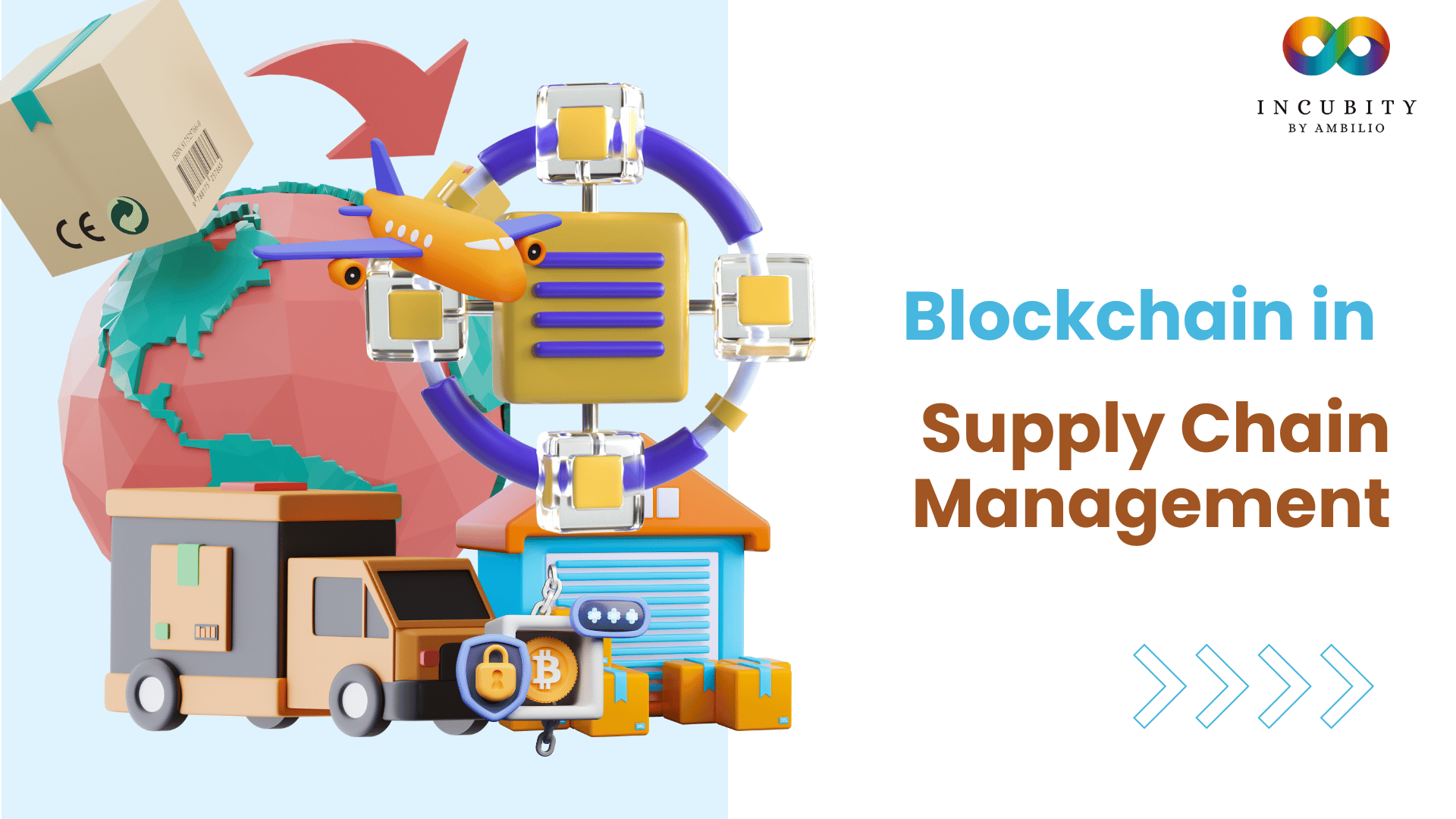Blockchain technology is an innovative and secure way to store and share data, making it an ideal solution for supply chain management and logistics. Blockchain is a decentralized digital ledger that records transactions securely and transparently, providing a tamper-proof record of every transaction. In recent years, the supply chain industry has been exploring the potential benefits of blockchain technology in managing supply chain operations, improving transparency, and enhancing security.
Supply chain management involves managing the flow of goods and services from the point of origin to the final destination. This process involves various stakeholders, including manufacturers, suppliers, distributors, retailers, and customers. The supply chain process is complex and can be challenging to manage, with issues such as tracking, quality control, and fraud often arising.
Logistics, on the other hand, refers to the process of planning, implementing, and controlling the efficient and effective flow of goods and services from the point of origin to the point of consumption. It involves the transportation, storage, and distribution of goods, as well as the coordination of various activities across the supply chain. Logistics is a critical part of supply chain management and can significantly impact the success of a business.
In the following sections, we will explore the potential benefits of using blockchain technology in supply chain management and logistics, as well as the challenges of implementing it in practice.
Challenges in Supply Chain Management and Logistics
Despite advances in technology and increased automation, supply chain management and logistics continue to face various challenges. These challenges can impact businesses in many ways, from increased costs to reduced efficiency and productivity. Some of the common challenges faced by supply chain management and logistics include:
- Lack of transparency: One of the significant challenges in supply chain management is a lack of transparency across the supply chain. This can make it difficult for businesses to track products, identify inefficiencies, and ensure compliance with regulations.
- Inefficient processes: Inefficient processes in supply chain management and logistics can lead to delays, increased costs, and reduced productivity. For example, manual data entry, paperwork, and outdated inventory management systems can all slow down the supply chain process.
- Supply chain complexity: The modern supply chain involves multiple stakeholders, including manufacturers, suppliers, distributors, and retailers, making it a complex and challenging system to manage. The complexity can increase the risk of errors, miscommunication, and delays.
- Counterfeit products: Counterfeit products can significantly impact the supply chain, leading to lost revenue and damage to a company’s reputation. Counterfeit products can be difficult to detect, which causes a significant challenge for supply chain management and logistics.
- Lack of security: The supply chain process can be vulnerable to various security threats, such as theft, fraud, and cyber attacks. These security issues can lead to significant financial losses and damage to a company’s reputation.
In summary, these challenges can have a significant impact on supply chain management and logistics. For example, lack of transparency can result in delays and difficulties in tracking products, while inefficient processes can lead to increased costs and reduced productivity. As we explore the potential benefits of blockchain technology in the next sections, we will see how blockchain can help address these challenges.
The Potential Benefits of Blockchain in Supply Chain Management and Logistics
Blockchain technology has the potential to revolutionize the way supply chain management and logistics are managed. By providing a secure and transparent digital ledger, blockchain can address many of the challenges faced by the industry. Here are some of the potential benefits of blockchain in supply chain management and logistics:
Transparency
Blockchain can significantly improve supply chain transparency by providing a secure and transparent digital ledger. This technology enables businesses to track products and identify inefficiencies more efficiently. Here are some ways blockchain can improve supply chain transparency:
- Product traceability: Blockchain can provide a transparent record of every transaction, allowing businesses to track products from their origin to their final destination. This can help businesses identify the source of any issues or defects and take corrective action.
- Document verification: Blockchain can securely store all documents related to the supply chain, including contracts, invoices, and bills of lading. This can help businesses verify the authenticity of the documents and ensure compliance with regulations.
- Supply chain collaboration: Blockchain can facilitate collaboration between multiple stakeholders in the supply chain, allowing them to share information and coordinate more efficiently.
Several businesses have already successfully used blockchain to improve supply chain transparency. For example, Nestle has implemented blockchain technology to track the origin of their products, including coffee and milk. This has helped the company improve transparency and reduce the risk of counterfeit products.
Efficiency
Blockchain can significantly improve supply chain efficiency by automating manual tasks and reducing the need for intermediaries. This technology can streamline supply chain processes, reducing costs and increasing efficiency. Here are some ways blockchain can help improve supply chain efficiency:
- Automated processes: Blockchain can automate manual tasks, such as data entry and paperwork, reducing the time and effort required to complete these tasks.
- Supply chain optimization: Blockchain can help optimize the supply chain by identifying inefficiencies and providing real-time tracking of products.
- Smart contracts: Smart contracts are self-executing contracts with the terms of the agreement written into code. This can reduce the need for intermediaries and increase efficiency.
Using blockchain to improve supply chain efficiency, IBM and Maersk have partnered to develop a blockchain platform called TradeLens, which provides real-time tracking of shipping containers and reduces the time and cost of moving goods.
Security
Blockchain can significantly improve supply chain security by providing enhanced security features and reducing the risk of fraud and cyber attacks. Here are some ways blockchain can help improve supply chain security:
- Decentralized storage: Blockchain stores data on a decentralized network of computers, making it more difficult for hackers to access and manipulate data.
- Immutable ledger: Once data is entered into the blockchain, it cannot be altered or deleted, providing a tamper-proof record of all transactions.
- Smart contracts: Smart contracts can automate the execution of contracts and reduce the need for intermediaries, reducing the risk of fraud.
BHP Billiton, a global mining company, has implemented blockchain technology to track mineral samples from the mine to the customer, ensuring that the minerals are ethically and sustainably sourced.
Potential Challenges of Implementing Blockchain in Supply Chain Management and Logistics
While blockchain technology holds great promise for supply chain management and logistics, there are potential challenges to implementing it effectively. Here are some common challenges and suggestions for how to overcome them:
- Integration with legacy systems: Many businesses still rely on legacy systems that may not be compatible with blockchain technology. To overcome this challenge, businesses can gradually integrate blockchain technology into their existing systems or partner with technology providers that can offer blockchain solutions.
- Data privacy and security: Blockchain provides a secure and transparent digital ledger, but there are still concerns about data privacy and security. To address this, businesses can implement security protocols, including encryption and access controls, and ensure compliance with data privacy regulations.
- Collaboration among stakeholders: Supply chain management involves multiple stakeholders, including suppliers, manufacturers, distributors, and retailers. To leverage the benefits of blockchain technology, it is essential to collaborate effectively with these stakeholders and develop a shared understanding of the benefits of blockchain.
Final Words
In conclusion, blockchain technology holds great potential for improving supply chain management and logistics by enhancing transparency, efficiency, and security. By leveraging blockchain, businesses can reduce costs, improve their ability to track products and ensure compliance with regulations, and protect against potential disruptions.
While there are challenges to implementing blockchain in supply chain management, businesses can overcome these challenges through collaboration, strategic planning, and the adoption of best practices.
As the supply chain industry continues to evolve, blockchain is likely to become an increasingly important tool for businesses looking to optimize their supply chain processes and remain competitive in the global marketplace. As such, businesses that can effectively integrate blockchain technology into their supply chain management are likely to gain a significant advantage over those that do not.







